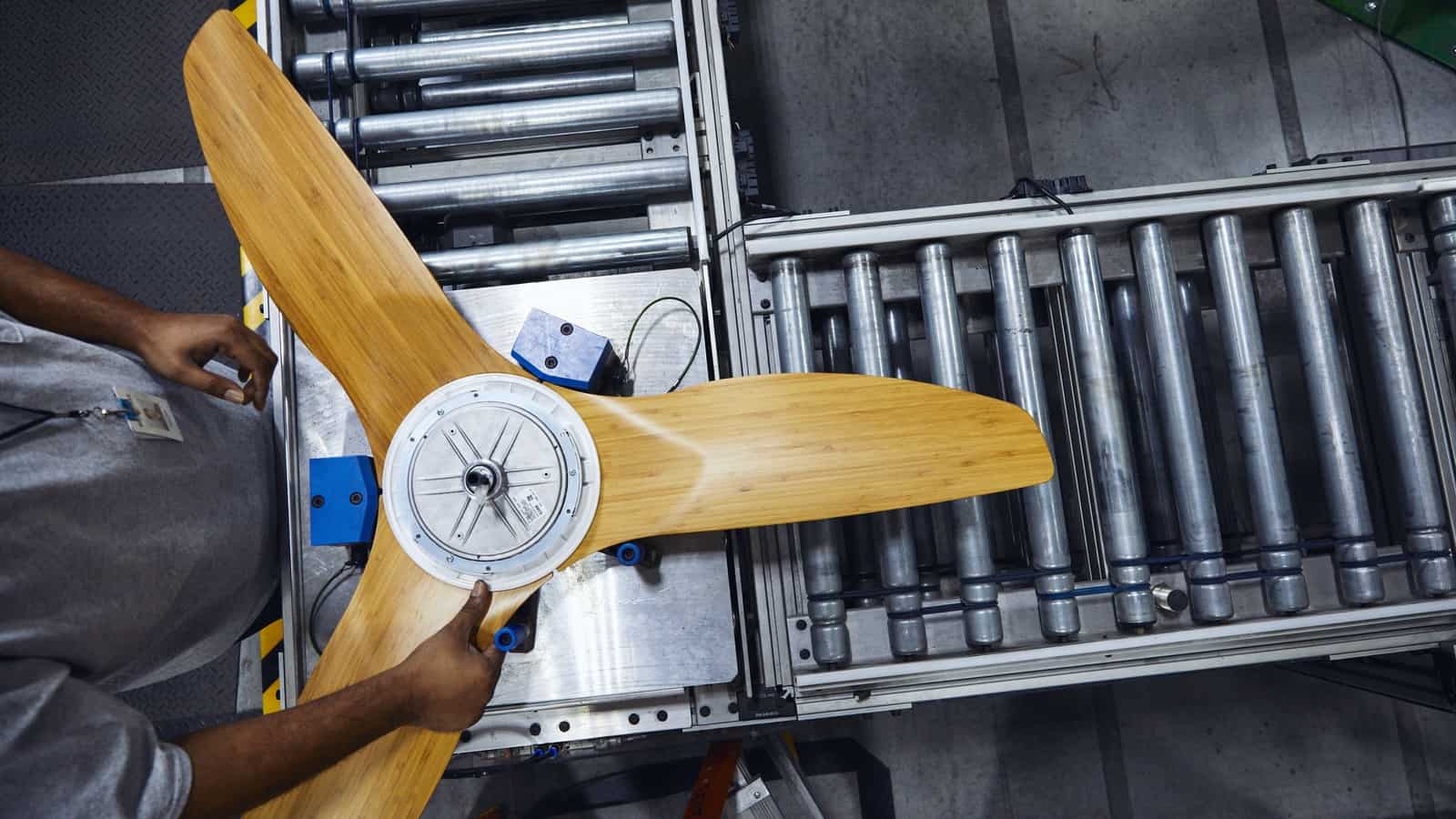Tax Policy Makes Innovation Possible for Big Ass Fans

For Big Ass Fans, a Kentucky-based company that manufactures fans, evaporative coolers and controls for industrial, agricultural, commercial and residential use, the eye-catching name isn’t the only thing that makes them distinctive. The company is also a leader in research and development, crediting U.S. tax policy with supporting its innovations and the jobs they create.
Investing in innovation: BAF has spent millions of dollars in R&D, even building an R&D lab on its global headquarters campus in 2008. Most recently, it pioneered new ways of disinfecting air to keep manufacturing employees healthy during the COVID-19 pandemic. And when Congress approved tax reform in 2017—including a lower corporate tax rate—the company got additional fuel for its efforts.
- “The more incentives that are there for us to create and for our customers to purchase, the more we can deliver for everyone,” said BAF Government and Public Relations Director Alex Risen.
Risen cautions, however, that a higher corporate tax rate could impact the company’s ability to grow. Meanwhile, a prospective tax change on R&D spending could stymie innovation by requiring the amortization of expenses (as opposed to current tax policy, which allows expenses to be fully deducted in the same year).
- “We’re always going to innovate. That’s in our DNA. But if our customers have higher corporate tax rates, that can take money out of our pockets and theirs,” said Risen. “If this new R&D tax policy detracts from a company’s ability to push and pioneer…then we’re all at risk of losing out on expedited innovation.”
Creating American jobs: BAF isn’t just using its revenues to invest in innovation; it’s also working to bring jobs and supply chains into the United States. In addition to its headquarters in Lexington, Kentucky, the company has offices in Canada, Australia and Singapore. Up until recently, it also had a manufacturing facility in Malaysia in addition to a sales office there—but BAF is in the process of moving those production jobs to the United States.
- “It doesn’t just mean new jobs at BAF; it brings more business to American vendors and suppliers,” said Risen. “It allows them to continue trying to grow even during a downturn and uncertain times.”
Bolstering supply chains: In addition to job creation, strengthening the supply chain was another top priority for BAF.
- “We were already working on moving those operations before the pandemic hit, but the pandemic is a reminder that you want to have that supply chain close,” said Risen. “We’ve been fortunate that we haven’t had to slow production down, because the majority of our product is here in our backyard. That speaks to where we want to be as a company that is internationally headquartered in the U.S. but serves 175 countries. We want to do our part in order to make high-end machinery a U.S. export.”
NAM support: To support companies like BAF and its customers, the NAM is leading the effort to ensure that the tax code keeps encouraging innovation. Recently, a bipartisan group of U.S. policymakers introduced legislation that would allow manufacturers to continue to deduct their R&D expenses immediately—a move that the NAM advocated for. The NAM is also working to strengthen U.S. supply chains, releasing an agenda for such actions last year.
The bottom line: “A high tide floats all boats,” said Risen. “We need to continue to innovate and deliver for companies in America—and we need to help Americans push the envelope, innovate and deliver for all of us.”
